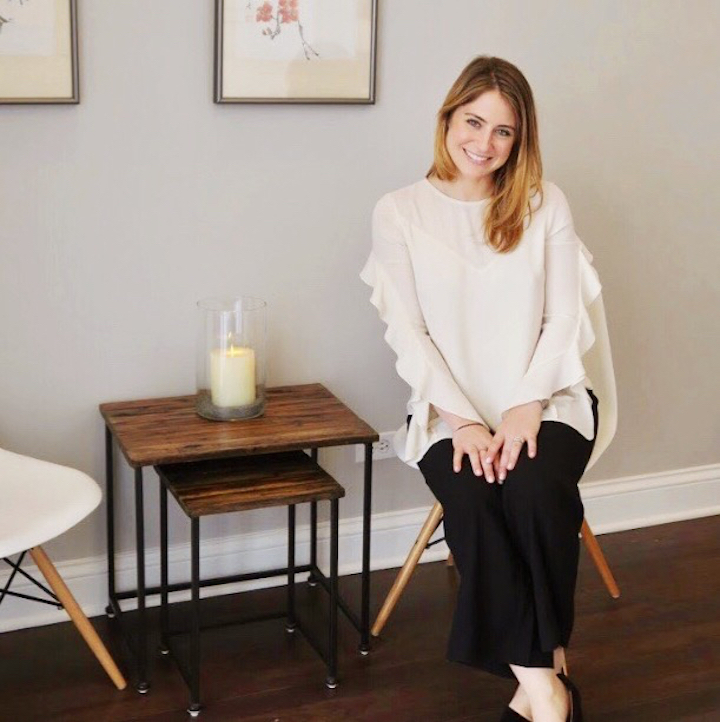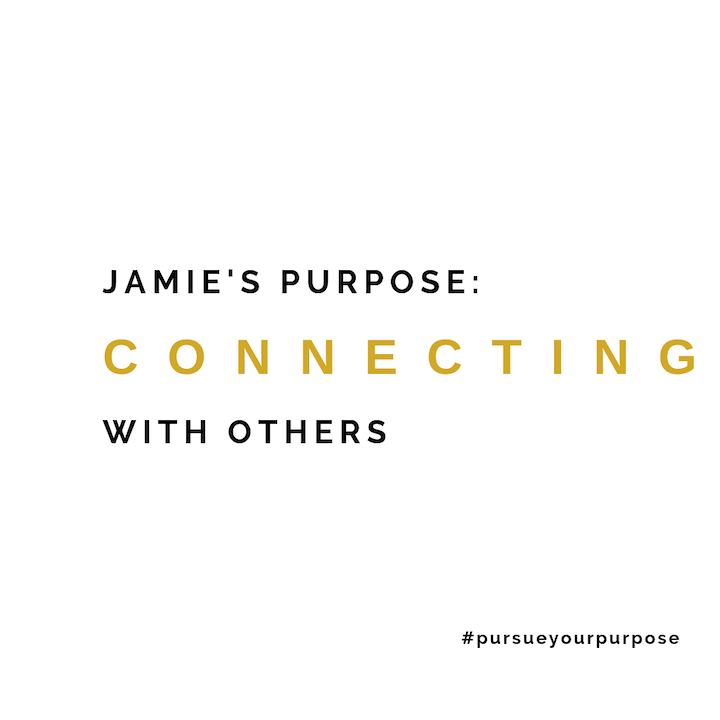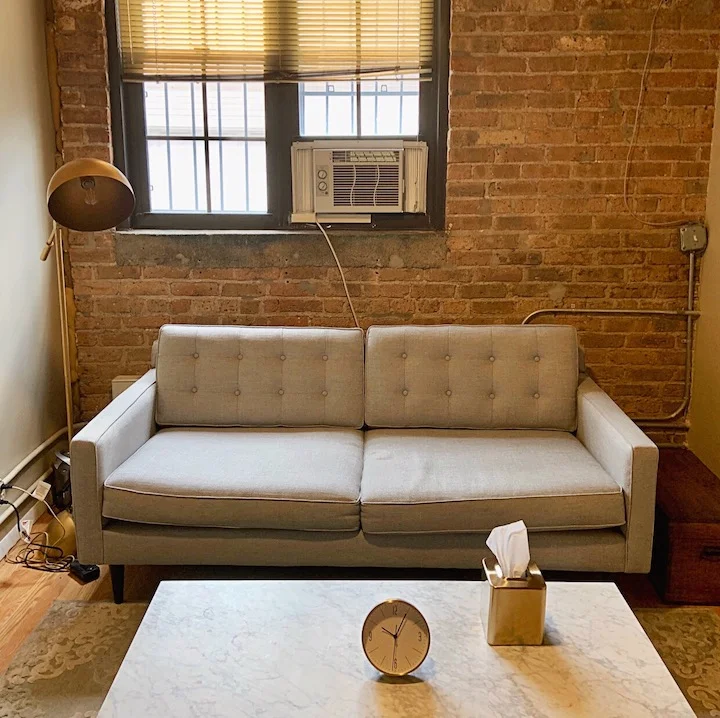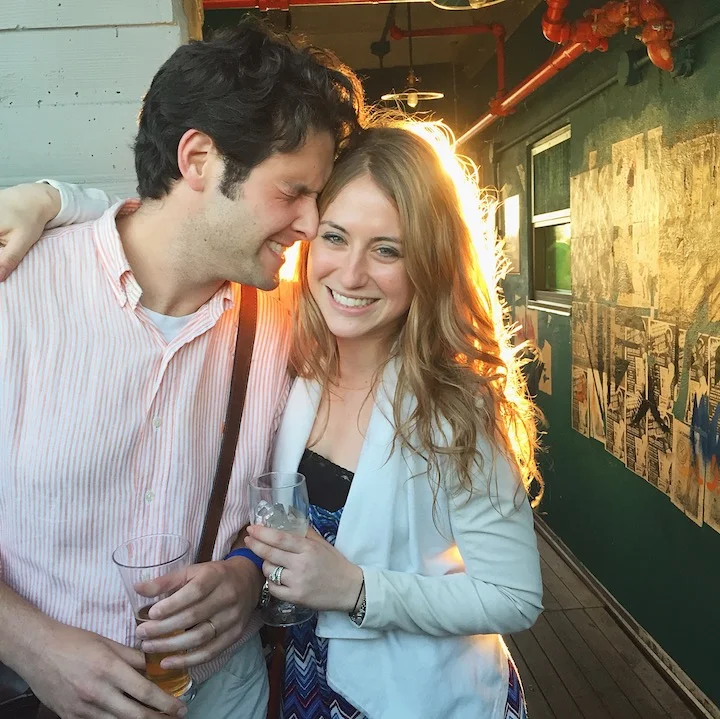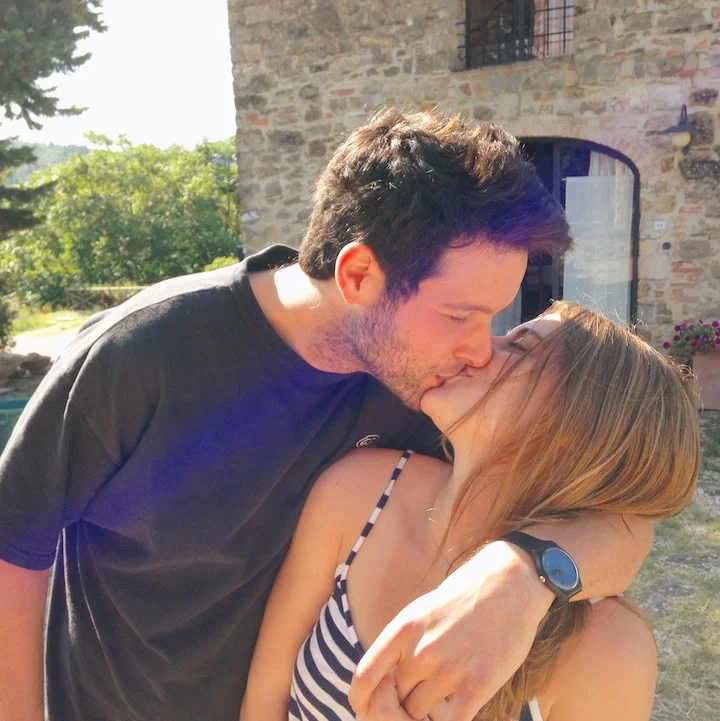How to Live Your Purpose Every Day
From Emily:
Do you talk about purpose?
When you’re with friends, family, the people who you feel most comfortable with, do you dig into your ambitions? Your meaning? The way the two intertwine?
It could be because I can’t stand small talk, but I think my interest in purpose, and helping others discover their own, was cultivated early on through conversations with friends.
I distinctly remember in 7th grade having conversations with my closest friends on long neighborhood walks where we would regularly ask, “are you happy?”
Now meet Jamie, my best friend, adventure partner, and soul sister since I was in sixth grade. This is someone who, while I was having existential crises left and right for about two decades, was always solid in exactly who she was. Rather than worrying about the future, she would spend her time scheming up something crazy fun for us to do while simultaneously getting straight A’s and supporting me in my journey.
She has always known how to keep life light and fun, while being the rock for everyone else in her life, always teaching us what it means to truly listen, what it means to be a good friend, what it means to love.
It made complete sense that she became a therapist.
Sharing her story this week is an honor, and, even though I’ve known her for most of my life, I was blown away by some of her revelations.
She dives deep into the choices she’s made to start her own private practice, how she’s learning through motherhood, and the overlap she sees between the questions she asked herself along her purpose journey and what she asks her clients in therapy sessions.
This conversation was a reminder that having conversations can connect the dots throughout your story in ways that simply wouldn’t happen without dedicated time and focus.
As you’re reading Jamie’s story think about the questions that come up for you, and see if you can bring them up the next time you’re catching up with over a glass of wine with your bestie.
Who are your friends who you can talk about the big stuff with?
What pivotal moments in your life have made you the person you are today?
Part Two
This is the way that I’ve been defining purpose for myself: purpose is that thing you do that makes you feel uniquely you.
It could be the work that you’re engaging in.
It could be the values that you have in your life.
It could be the people that you care for or connect to.
I’m a social worker by trade, and I’ve always known that I’ve wanted to work in a helping profession. Right away, I knew my purpose, it was figuring out what to do next that was the challenge.
I’m a certified perinatal mental health clinician. In my private practice, I specialize in maternal mental health, working with pregnant and postpartum women who are experiencing perinatal mood and anxiety disorders.
It’s incredible work, and my job allows me to connect to my own purpose every single day.
Purpose and values feel really similar to me.
Working with Emily as my best friend, I’ve been able to narrow my values into a clear purpose statement: connecting with others.
Short and sweet, but it says everything you need to know about why I do what I do.
Connecting with others - it transcends the therapy space.
It’s in so many different facets of my life, in my work, as a partner, as a mother, and as a friend. That feels good for me.
That feels like me.
One of the things that I tell my clients is, “Living by your values is much more workable than living through your feelings.” Feelings can be fickle!
If we can commit to our values and accept the feelings that come along the way, life is much more doable.
While our feelings are valid, they are not always an accurate picture of what is going on nor do they help us meet our purpose. However, living through our values is more aligned with our purpose. When I am able to accept my feelings, I’m able to focus on my purpose and values over what I’m feeling in the present moment, it feels genuine, it feels good, it feels like me.
Part Three
People think therapy is a one-sided or non-reciprocal relationship, because the therapist isn’t disclosing what’s going on in their lives.
The therapeutic relationship is unique for my clients, but it’s also a special experience for me as well.
I don’t have people in my life where the focus is just on what they’re going through, and my role is just to help them heal.
The longer I do this work, the more I realize that my clients are giving something to me too.
I might not be saying it in the room, but I’m definitely learning, sometimes even healing, from them.
One lesson: be comfortable in ambiguity, because you don’t always know the answer.
I say to my clients, “If you could take one thing away from therapy, I hope it’s how to sit in the discomfort, to be comfortable in it.”
That’s hard - to be uncomfortable, to sit in the unknown is really difficult for so many people, myself included. How often do we ever know what’s right? We never really can know.
As a result, we try and control the things that we can, and there’s challenges and struggles in that too.
I have a working theory that these conversations about uncertainty and impermanence align with the conversations I’ve had about purpose.
Purpose can be fluid in that there is really never an end point. We can never really know what we’re meant for until we start testing, trying, living.
The discourse around “finding your purpose” can make it seem so permanent, and it’s just not. That’s what makes life continue to be exciting.
Part Four
One of the first times that I felt like I was truly living my purpose, I was sitting in my therapist’s chair.
I was in graduate school at my internship, and my client was a woman in her early 40s.
She was HIV+
She had contracted HIV many years before coming to see me, and she had stopped living by her purpose. She was closed off and her important relationships started to fade away.
Without consistent connection, it felt like she was truly on her own on this journey.
She wanted a do-over.
We got into this conversation about acceptance, and she just couldn’t accept her diagnosis or the circumstances around contracting the virus.
Not only could she not accept this diagnosis, she couldn’t forgive herself either. She asked me, “How do you accept something that you will never be okay with?
In this moment, in this very real moment in the room, we came up with a new definition of acceptance.
Acceptance for her would never mean being ‘okay’ with her diagnosis. For her, it meant not trying to go back to that night and use a condom, or making the decision not to sleep with this individual in the first place.
That was the only thing she couldn’t do.
By punishing herself and continuing to go back to that night 15 years prior, she was preventing herself from living her life.
It was a breakthrough moment for us both.
I just remember sitting in the room sharing this moment, knowing that we would have no connection in the world if I wasn’t her therapist.
We wouldn’t be in each other’s lives.
In that moment we were just so connected on a deep level. It felt very much like, “This is my purpose.”
Part Five
Even when you know your purpose, when you feel it in your bones, and you light up when you’re living it - even then, it can be difficult not to doubt yourself.
I think that everyone has a small (or not) voice in their head that’s telling them what they can’t do, or saying that they’re not good enough, not smart enough.
Because I hear that from so many of my clients, when it comes up for me I understand what it is a little bit more.
It doesn’t mean I don’t wrestle with it.
The voice that I have in my head tells me that I’m not competent. I don’t know where it came from because my parents were always really encouraging as I was growing up. Maybe it was the social impact of growing up as a girl?
Sometimes that voice is really soft, because I’ve done so many things in my life that I wouldn’t have been able to do if I wasn’t competent: graduating from college, getting a master’s degree, starting a private practice.
Then there are things that I do that are just incredibly stupid or incompetent.
During those times, I have this freakout moment where that voice is so loud and I feel so lost.
What I’ve learned about myself is that stress-based response comes out when I don’t feel competent, when I feel like I’m not doing all that I am capable of doing.
I believe it has something to do with feeling like I’m not living my purpose, or that I’m not able to live my purpose, or that I’m not living up to my purpose.
On those days, when I’m questioning everything, I force myself to take action.
Instead of wallowing in the doubt that threatens to take over my mindset, I tell myself that I just need to connect with one person.
One person. One moment.
If I can just reconnect with my purpose and impact someone else or strengthen a relationship in the day, I’ve done it. I’ve proven that I am competent and capable. My entire day can turn around in a heartbeat.
Part Six
As a therapist, I’m not really supposed to give advice.
Let’s say that today is an exception.
I think that when you're trying to find your purpose and you don’t know what it is, a lot of people just become so stuck. In that phase, it’s impossible to see what might be right in front of you.
Having openness, flexibility, being aware, being present - those are all the things you can do to become unstuck.
After all, your purpose is great, but that’s not the end of your journey. Once you’ve found your purpose, what are you going to do to live by it?
Therapists call this the magic question:“If you could wake up tomorrow and everything is as it should be, what would that look like?”
In a way, I think that’s getting at purpose.
For the most part, client answers reflect their purpose. They’re not saying, “Tomorrow I’d win the lottery.” They have these really realistic goals to make their life meaningful.
If my purpose is connection, then I think my answer to the “magic question” would revolve around the people in my life who are meant to be there.
My husband. That feels like such a purposeful relationship, that we are soulmates and meant to be together.
My daughter. I was meant to be her mother and I feel so lucky that she came into my life.
If you’re feeling stuck on this journey, if you’re afraid of being lost or never finding what it is that you’re meant for, know this: we all have answers to this magic question inside of us.
We all have a vision for ourselves in our heads.
It’s up to us to bring that vision - that purpose - to life.
From Emily:
Jamie has known her purpose since we were kids, but she hasn’t allowed that certainty to hold her still.
Through every chapter - marriage, motherhood, entrepreneurship - she has sought out new ways to embrace her purpose in every aspect of her life. And I am continuously in awe of her calm perseverance, her graceful determination and her ability to move through life with such clarity.
Connection is at the heart of Jamie’s being and I know that’s why we’ve remained so close over the years. We’ve both thrived on deep connection, late night chats about our lives over a few glasses of wine, and the intimacy that comes with baring your doubts and fears.
Hearing that Jamie, this successful, powerful, impactful woman, still has those doubts about feeling incompetent is a reminder to all of us that we’re only human. .
In a way, it takes the pressure off the rest of us. No, you don’t need to have it all figured out in order to feel fulfilled, to be living your purpose.
As Jamie said, finding your purpose is just the beginning. It’s how you live by it that makes the difference.
When was the last time you talked about these larger questions with someone in your life?
Who can do feel comfortable opening up to?
Do you already know and understand your purpose, or would you consider the possibility of exploring your meaning and values?
When it comes to something as big as your purpose, it can be helpful to bounce ideas off of someone you trust, to work through the spots you’re getting stuck on, the aspects of your life that you’re having difficulty with.
I’m happy to be that person for you. My DMs are always open.
